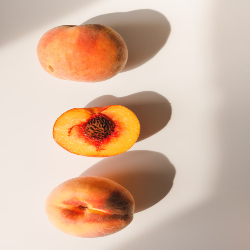Elderberry Nutrition facts
Elderberry

Tiny, round elderberry is the storehouse of health benefiting anthocyanin antioxidants. Early settlers of North America were well acquainted with the medicinal uses of elderflowers and berries long before the Spanish and other European explorers re-discovered its uses. These small round blue-purple berries have long been attributed to the longevity and wellness of indigenous natives around arctic regions of the Northern hemisphere.
Scientific name: Sambucus nigra. L.
Similar Food
-
 Acai berry 63 Cal
Acai berry 63 Cal -
 Acerola cherry 32 Cal
Acerola cherry 32 Cal -
 Apple 52 Cal
Apple 52 Cal -
 Apricot 48 Cal
Apricot 48 Cal -
 Avocado 160 Cal
Avocado 160 Cal
Source of Calorie
73
Calories
-
Carbs18.40 g 91%
-
Protein0.66 g 3%
-
Fat0.50 g 6%
How long to burn off 73 Calories?
*Approximate base minutes for a 25-year-old, 65 kg adult at moderate intensity.
Swimming
12
min
Jogging
10
min
Cycling
10
min
Walking
18
min
| Nutrition Principle | Nutrition Value | Percentage of RDA |
|---|---|---|
| Principle | ||
| Energy | 73 Kcal | 3.6% |
| Carbohydrates | 18.40 g | 14% |
| Protein | 0.66 g | 1% |
| Total Fat | 0.50 g | 2% |
| Cholesterol | 0 mg | 0% |
| Dietary Fiber | 7 g | 18% |
| Vitamins | ||
| Folates | 6 µg | 1.5% |
| Niacin | 0.500 mg | 3% |
| Pantothenic acid | 0.140 mg | 2.5% |
| Pyridoxine | 0.230 mg | 18% |
| Riboflavin | 0.060 mg | 4.5% |
| Vitamin A | 600 IU | 20% |
| Vitamin C | 36 mg | 60% |
| Electrolytes | ||
| Sodium | 6 mg | 0.5% |
| Potassium | 280 mg | 6% |
| Minerals | ||
| Calcium | 38 mg | 4% |
| Iron | 1.6 mg | 20% |
| Magnesium | 5 mg | 1.5% |
| Phosphorous | 39 mg | 5.5% |
| Zinc | 0.11 mg | 1% |
| Phyto-nutrients | ||
| Isorhamnetin | 5.4 mg | -- |
| Quercetin | 26.8 mg | -- |